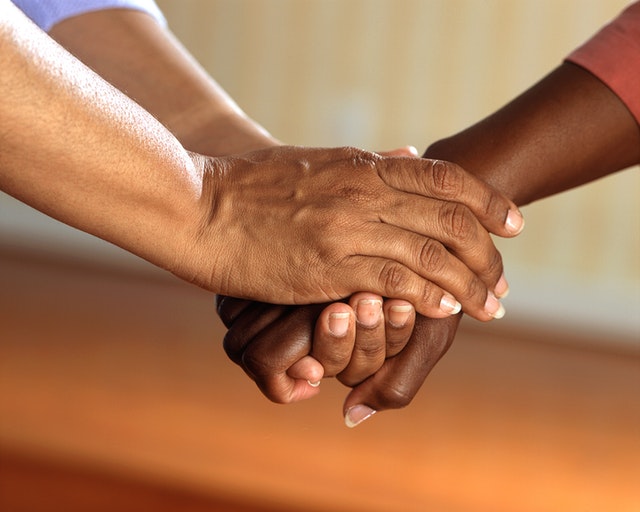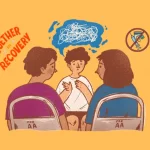
(Source: Pexels)
When a friend, partner or family member is diagnosed with cancer, it can be devastating. It might feel like your whole world is shattering, but you know that it’s so important that you’re there for them. It can be really difficult to know the right things to say, or what to expect while they’re going through treatment. Everyone deals with cancer differently, but here are ten ways that could help you support your loved ones with their cancer journey. Remember, there’s no “right” way to deal with cancer, but these supportive ideas may apply to you or your loved one.
Communicate
It’s easy to become wrapped up in your own feelings, particularly your own fears. You might think you know what’s best for the person with cancer, but have you actively listened to their needs? Communication is key. Listen without judgment. Let them share their fears and wants, and discuss it without coloring the discussion with your own requirements. If they are not someone you live with, discuss how often they want you to be in contact, and how they prefer to communicate. Is it easier for them to drop you a message when they feel low or need help? Show patience and let them lead the conversation.
Practical Support
Offer help with day to day tasks, whether that’s watering the plants or booking appointments for them. However, don’t presume to take over as this can leave some people feeling helpless. Ask what they need, and be respectful.
Emotional Support
When someone is diagnosed with cancer they go on an emotional rollercoaster and may not know how they are feeling from one day to the next. Offer support, a listening ear, and be patient with emotions that may swing from anger to despair. Acknowledge cancer- don’t try and pretend things haven’t changed, as this can be confusing to the person trying to come to terms with their diagnosis.
Activities
Don’t let your loved one be defined by their cancer. Try and involve them in as many of their favorite activities as possible. If they are able, encourage exercise, even if it’s just going out for a walk. If exercise isn’t possible, what do they like? Books? Puzzles? Music? You know them and love them, so treat them to the things they love.
Mindfulness
Mindfulness and meditation can be useful for both you and your loved one. It allows you to take a few moments to break away from the worry and stress and simply let your mind rest. There are various apps that can teach mindfulness or guide you through the basics of meditation.
Be Informed
Try and understand the type of cancer your loved one has and what treatment they may have to go through. It may be uncomfortable for you to hear the ins and outs of difficult treatments, but it will help you understand their journey so much better. Don’t presume to offer advice on treatments unless it’s asked for.
Be Prepared for Personality Changes
Personality changes can take carers by surprise. Your loved one may not seem themselves at times, and this may go on for some time. These personality changes can be caused by depression, anxiety, or even treatment side effects. Treatment side effects include so-called “chemo brain”, which is like a mental fog causing memory issues and lack of concentration. Be patient, offer support, and make sure that communication is open and honest at all times.
Self-Care
Be sure to look after yourself. If you are spending all day caring for someone who has cancer, be sure to take some time for yourself. Get out into the fresh air, read a book, go swimming, see a friend who you can talk to. Get plenty of sleep, and make sure you are eating and drinking properly. You cannot be of any help if you are burnt out or stressed out, so looking after yourself is just as important as looking after the person with cancer.
Honesty and Openness
Try and be as open as possible with your loved one who has cancer, the family, and yourself. Hiding things like how serious the condition is, or the potential treatment side effects will only lead to more emotional pain further down the line. It might feel like you’re protecting people by downplaying the seriousness, but it actually really helps to be open, honest, and allow people to process their emotions in their own way.
Focus on Positives
When someone is in recovery from cancer, it can still feel like a hard slog back to wellness. Focus on the life-changing experience they’ve had, how much they’ve got to look forward to, and maybe even set goals like things you want to do together once they’re back to full health.
Contributed by:
Founded in 2015 by Tamara Rajah, Live Better With is here to make everyday life a little bit better for the millions of people living with long term conditions all over the world.
Live Better With is an online destination that offers a large, curated selection of products to help with the symptoms and side effects of cancer, dementia, and menopause. As well as this, Live Better With having brought together a wealth of practical articles, expert guides, a supportive online community of over 70,000 people talking about their conditions, and relevant support services. All handpicked products and helpful, practical information and services are guided by recommendations from patients, loved ones and the wider condition-specific community.




